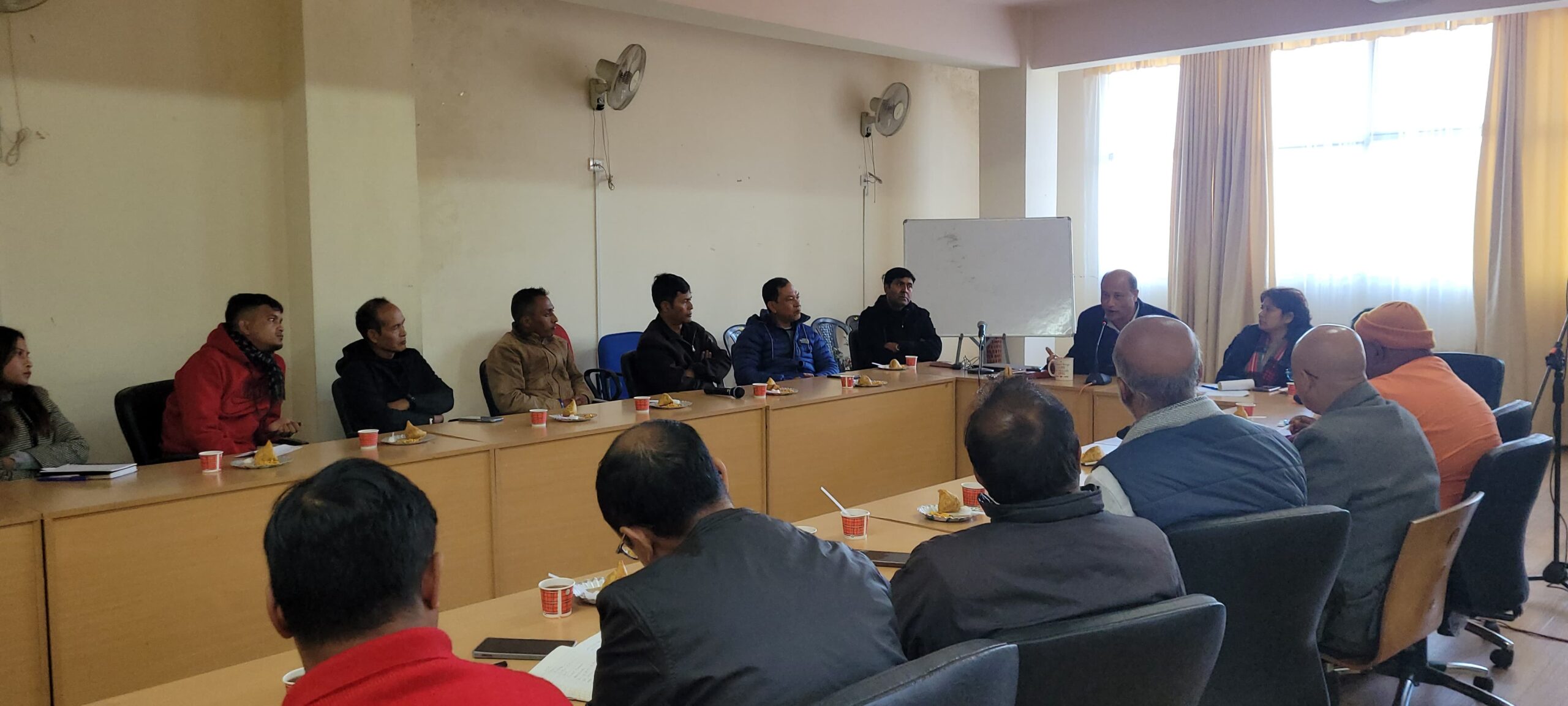Shillong, Dec 13: Francis G. Kharshiing, Mission Director of the Drug Reduction, Elimination, and Action Mission (DREAM), has emphasized the need to introduce vocational training programs at rehabilitation centers across Meghalaya to address the alarming relapse rates among youth recovering from substance abuse.
Talking to Meghalaya News 24, Kharshiing stated, the relapse rate stands at a staggering 70-80%, requiring urgent and innovative measures to reintegrate these individuals into society.
“You see what has happened is after I took over this mission, I had quite a number of discussions with the rehab centers,” Kharshiing stated adding, “After my discussion with them, I found that most of them were of the view that despite undergoing rehabilitation, many of the youths, especially those in substance abuse, are prone to relapse, and it’s quite an alarming rate—around 70 to 80 percent the chance to relapse. So we had a thinking: how can we resolve this issue?”
Highlighting vocational training as a potential solution, he said, “We had an idea—if, after rehabilitation, those youth can somehow be reemployed or guided into some employment, training, or vocation, maybe that will bring some change in their thinking and motivate them. So today, I called these professionals who are running vocational centers like ITI, the Skills Development project of the Government of Meghalaya, Don Bosco Technical School, Ramakrishna Mission, and other agencies running these vocational training centers—most of them providing free training. I also brought in people running rehab centers and counselors.”
The Mission Director DREAM, added, “We thought that if we both meet together, discuss the possibility of introducing vocational training in the rehab centers, and follow up with further training after the rehab, maybe that will bring in some change to these youth, motivate them, give them confidence to stand up in society, and initiate their own business or work to be productive for themselves and society.”
Kharshiing, a retired IPS officer, acknowledged the complexity of addressing the substance abuse crisis. “This particular problem is extremely complex. It’s not like daily government agencies where you have certain problems or maybe in a hospital where someone is sick, and you treat and diagnose them. This is a very complex issue. We’re dealing with individuals who have undergone major changes in their life and lifestyle, which has affected them greatly,” he said.
He emphasized the need for a multi-dimensional approach. “To approach solving this issue, you cannot rest on only one solution. There must be multiple solutions from all angles—physical training, counseling, community support, awareness, and many other things. This is one aspect I thought we could give a try. If this works, nothing like it. I’m very happy about it. And besides that, I’m willing to accept any suggestions that people are ready to give. If the suggestion is good, I’m ready and willing to take it up. But this idea to train with vocational training—if it can inspire one person and bring some change in them, I’ll be really, really happy.”
When asked about the state government’s plan to establish 15 rehabilitation centers by 2025, Kharshiing expressed optimism and shared that several individuals and groups are already initiating efforts to establish such facilities.
“I’m sure the government will have a discussion and will take the DREAM Mission on board. But for your information, there are individuals keen to initiate rehab centers,” he revealed.
“There are already four people who have contacted me, who are interested in running the rehab centers. I’m encouraging a lot of people. Through the media, I also encourage our community—those who are able to afford, who can sponsor or support—please come forward. I request you to kindly come forward and assist in one way or the other in setting up rehabilitations. This is the need of the hour for our youth,” he said.
Kharshiing elaborated on the progress made by local groups, saying, “At the moment, there is a team from Mawngap ready to set up a rehab center; they have already been in consultation with me. Another group from Sohryngkham is also keen. In Mawkyrwat, they’ve already set up a building and are in the process. There is another person interested in Mawdiangdiang. We are very prosperously assisting and encouraging them.”
Reaffirming the DREAM Mission’s commitment to combating the drug menace, Kharshiing called for collective efforts to support rehabilitation and reintegration programs through prevention, enforcement, and community involvement.


